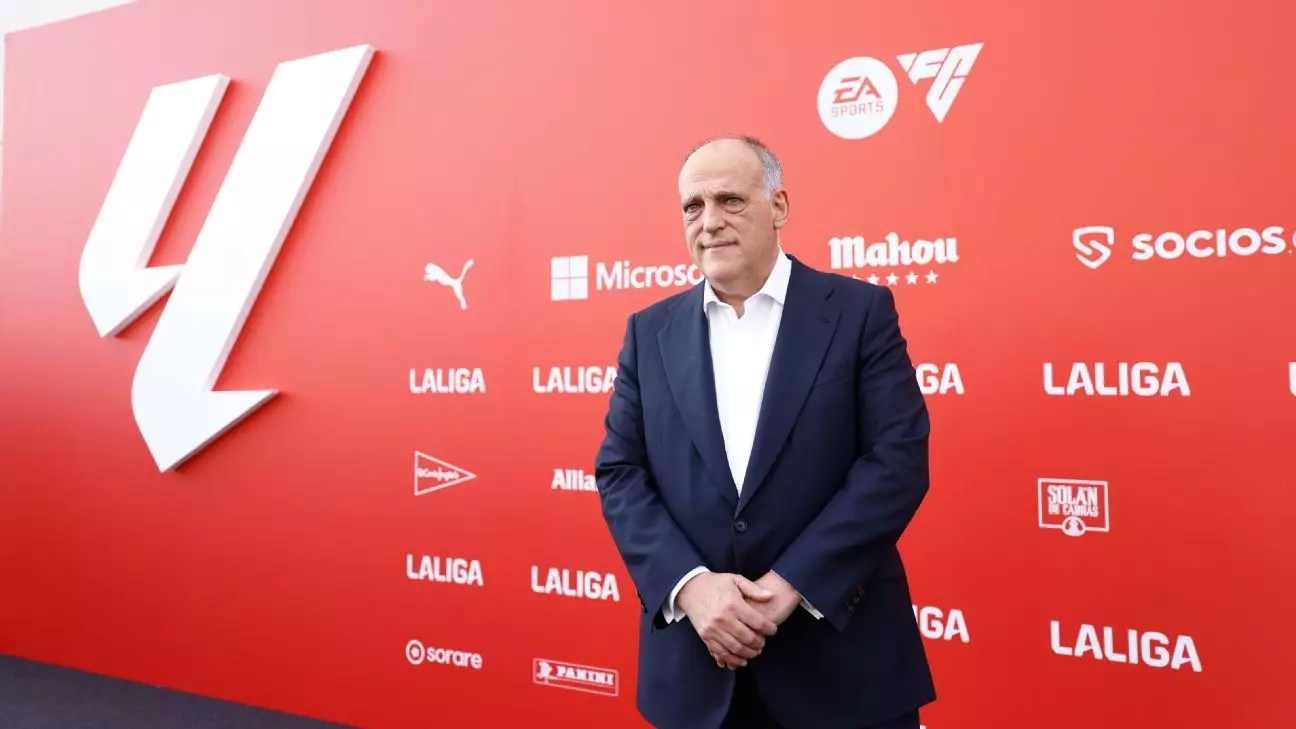Real Madrid’s recent signing of Kylian Mbappé has sparked discussions about whether the LaLiga champions will be able to repeat their title success from the previous season. Despite finishing 10 points clear at the top of the table and securing the title with four games to spare, league president Javier Tebas has cautioned against assuming that Mbappé’s arrival guarantees further dominance for Madrid. According to Tebas, the addition of a star player like Mbappé does not automatically translate to a team’s improvement, pointing out that several key players, such as Toni Kroos and Nacho Fernández, will not be continuing with the squad. Tebas emphasized that winning the league with Mbappé on board is not a foregone conclusion, highlighting the complexities of team dynamics and other contributing factors.
The impending retirement of midfielder Toni Kroos, along with the departure of former captain Nacho Fernández, poses challenges for Real Madrid as they navigate the upcoming season. Kroos is set to retire after his participation in Euro 2024 with Germany, while Nacho has joined Saudi Arabia’s Al Qadsiah. Tebas acknowledged the difficulty of finding adequate replacements for players of their caliber, emphasizing the unique strengths that other players like Antoine Griezmann, Robert Lewandowski, Pedri, and Lamine Yamal bring to the table. The absence of Kroos and Nacho creates a void that must be filled strategically to maintain the team’s competitive edge in the league.
Real Madrid’s biggest rivals, Barcelona, have faced financial constraints limiting their ability to make significant signings in recent years. However, Tebas suggested that Barcelona is now in a more favorable position to invest in new players, potentially targeting individuals like Spain and Athletic Club winger Nico Williams. With a reduced wage bill compared to Madrid, Barcelona could capitalize on upcoming transfer opportunities to strengthen their squad. Tebas highlighted the importance of Barcelona closing the financial gap with their rivals to enhance their prospects of securing key signings in the transfer market.
The Spanish football federation recently announced regulatory changes for the 2024-25 season, including the introduction of semi-automated offside technology. Despite these advancements, LaLiga continues to operate without goal-line technology, relying solely on VAR to determine whether a goal has been scored. Tebas defended this decision, citing concerns about the accuracy and reliability of existing goal-line technology in football. He argued that while VAR successfully resolves the majority of disputed goal situations, the imperfections of technology underscore the complexities of implementing goal-line technology effectively. Tebas indicated that further enhancements, such as additional camera angles, are being explored to improve officiating standards in the league.
Real Madrid’s acquisition of Kylian Mbappé represents a significant milestone for the club, but it does not guarantee continued success in the upcoming LaLiga season. The departure of key players, coupled with the evolving landscape of player transfers and financial competitiveness, pose challenges for Madrid as they seek to defend their title. Barcelona’s resurgence and technological developments in the league further add layers of complexity to the Spanish football landscape, setting the stage for an intriguing season ahead.


Leave a Reply